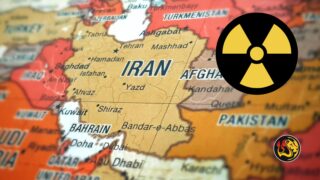
by Emmitt Barry, with reporting from Washington D.C. Bureau Staff
(Worthy News) – In a decisive move that signals mounting international pressure on Tehran, Britain, France, and Germany–collectively known as the E3–have informed the United Nations they are prepared to reinstate UN-mandated sanctions on Iran if no diplomatic resolution is reached regarding its nuclear program by the end of August.
The warning came in a joint letter sent to UN Secretary-General Antonio Guterres and the Security Council and made public on Wednesday. The E3 reiterated their resolve to prevent Iran from acquiring nuclear weapons, invoking the “snapback” mechanism embedded in the 2015 Joint Comprehensive Plan of Action (JCPOA).
“Iran must not be allowed to acquire nuclear weapons under any circumstances,” stated French Foreign Minister Jean-Noël Barrot in a post on X, where he shared a copy of the letter. He warned that if Iran continues to violate its commitments, the E3 would move to reimpose the arms embargo, nuclear equipment bans, and banking restrictions lifted in 2015.
A Rapidly Closing Window
The E3’s letter underscores growing alarm over Iran’s recent actions–including suspending cooperation with the International Atomic Energy Agency (IAEA) and enriching uranium to levels far beyond JCPOA limits. Iran is now believed to possess a stockpile exceeding 40 times the permissible amount of enriched uranium under the 2015 deal.
The diplomatic climate deteriorated further following a 12-day conflict in June between Israel and Iran, during which Israeli and U.S. airstrikes reportedly targeted key nuclear infrastructure. In the aftermath, Iran severed cooperation with the IAEA, although talks are underway for the agency’s deputy chief to visit Tehran.
Despite some backchannel diplomacy last month in Istanbul, where the E3 met with Iranian representatives, progress has stalled. Iranian Foreign Minister Abbas Araghchi dismissed the E3’s legal basis for sanctions as “unfounded”–a claim flatly rejected by European officials.
“Our position and our appeal is, very clearly, that Iran still has the choice of deciding to return to diplomacy and full cooperation with the IAEA,” said German Foreign Ministry spokesman Josef Hinterseher.
Legal Path to Snapback
The “snapback” provision, a powerful mechanism within the JCPOA, allows any party to the agreement to reimpose UN sanctions if they determine another party is not complying. Although the U.S. exited the JCPOA in 2018 under President Donald Trump, the E3 remained committed–until now.
The letter affirms that the E3 “have unambiguous legal grounds” to restore the sanctions regime should Iran fail to return to the negotiating table by the end of August.
The move would reinstate sweeping restrictions, including a ban on uranium enrichment, a global arms embargo, and a halt to financial transactions related to Iran’s nuclear and missile programs.
Rising Tensions, Uncertain Outcomes
While U.S. intelligence agencies maintain that Iran halted its organized weapons program in 2003, Tehran’s ongoing enrichment up to 60% purity places it just a technical step away from weapons-grade levels.
With talks between Iran and Washington frozen since the June conflict, and IAEA inspectors still denied access to critical sites, the path forward remains uncertain. Diplomats stress that renewed cooperation from Iran could delay or prevent the activation of snapback measures–but time is running out.
As the August 31 deadline looms, the international community watches closely. Whether Iran chooses confrontation or compromise could reshape the region’s nuclear landscape for years to come.
Copyright 1999-2026 Worthy News. This article was originally published on Worthy News and was reproduced with permission.
Latest News from Worthy News
A Christian pastor detained in Nicaragua since July 2025 has been released from prison but placed under house arrest along with five other Christian believers, Worthy News established on Thursday.
An injured Christian pastor in eastern India says recalling Bible verses gave him strength to survive hours of brutal abuse by a Hindu mob that accused him of converting Hindus to Christianity.
U.S. forces carried out five sets of precision strikes against Islamic State targets across Syria between Jan. 27 and Feb. 2, the U.S. military’s U.S. Central Command announced Wednesday.
U.S. forces carried out five sets of precision strikes against Islamic State targets across Syria between Jan. 27 and Feb. 2, the U.S. military’s U.S. Central Command announced Wednesday.
U.S. Special Envoy Steve Witkoff announced on Feb. 5 that Ukraine and Russia have agreed to exchange 314 prisoners, marking the first such swap in five months and the most tangible outcome yet from U.S.-brokered talks held in Abu Dhabi. The exchange followed multiple days of trilateral negotiations involving delegations from Washington, Kyiv, and Moscow.
The Supreme Court of the United States on Wednesday declined to take up a legal challenge to California’s newly drawn congressional map, allowing the state to proceed with district lines that effectively eliminate five Republican-held U.S. House seats.
President Donald Trump said Thursday that Iran has entered negotiations with the United States because it fears potential military action, as both sides prepare for high-stakes talks expected to take place in Oman. Speaking at the National Prayer Breakfast in Washington, Trump said Tehran “doesn’t want us to hit them,” adding that a U.S. naval fleet is in the region as pressure increases.






